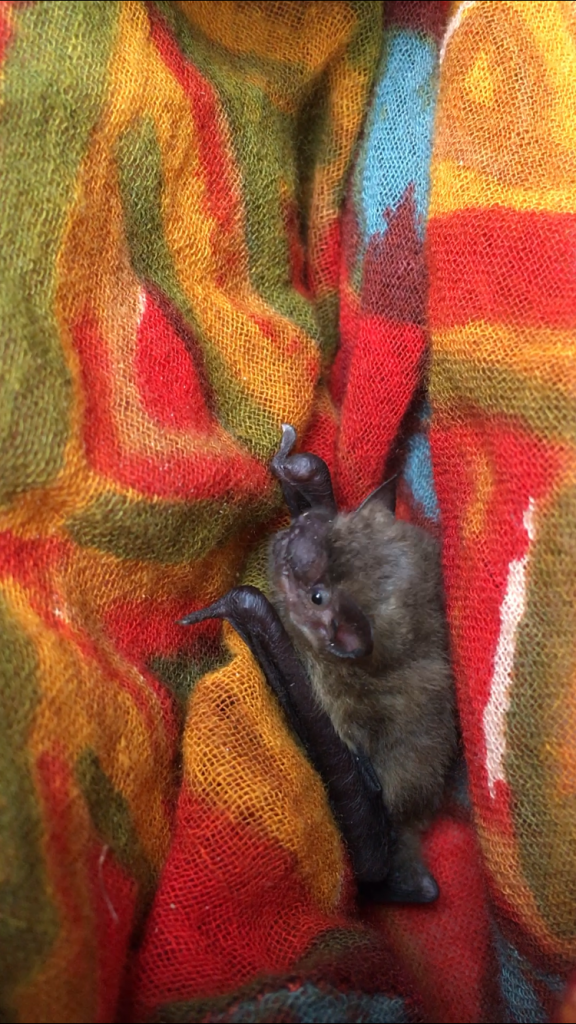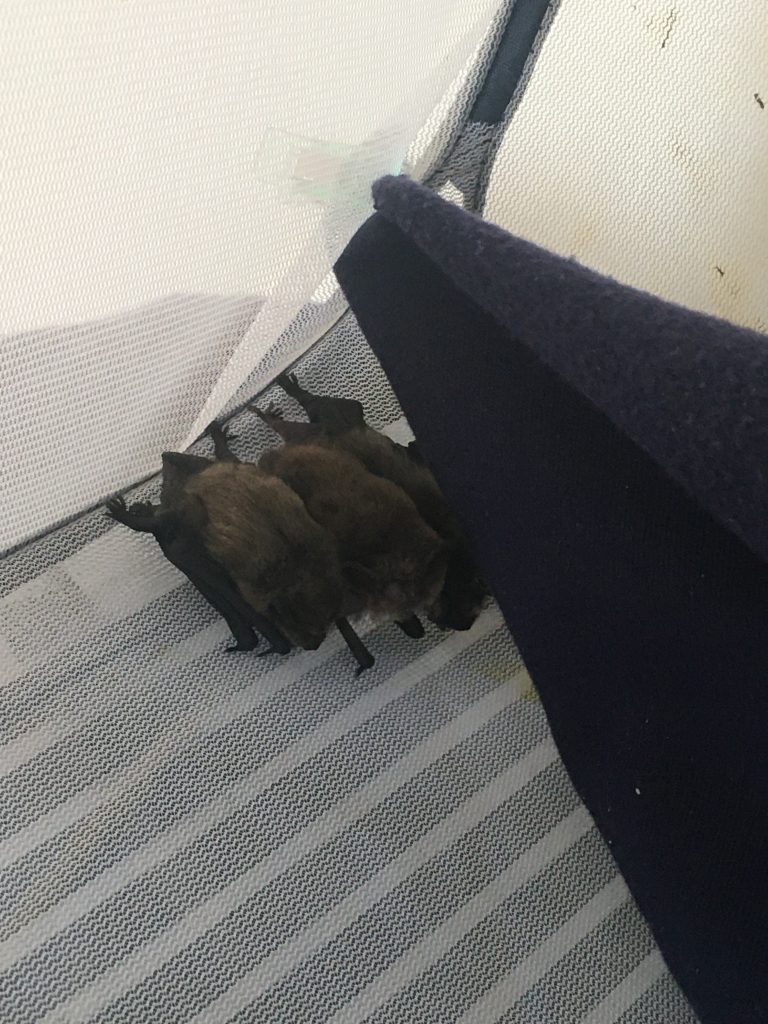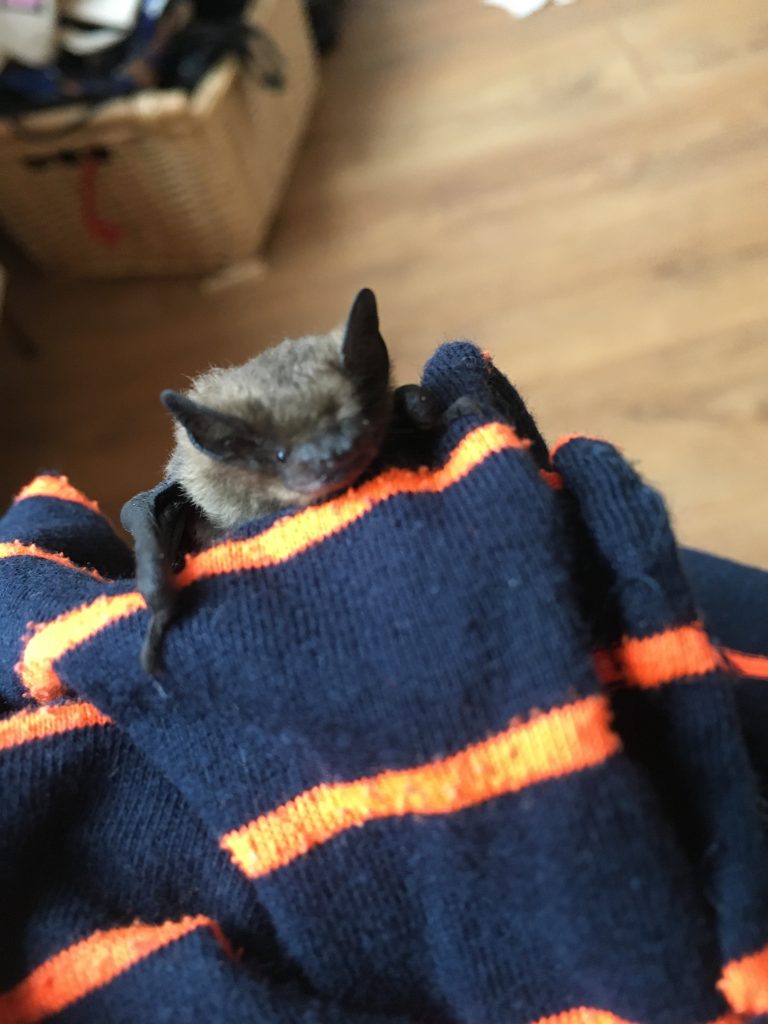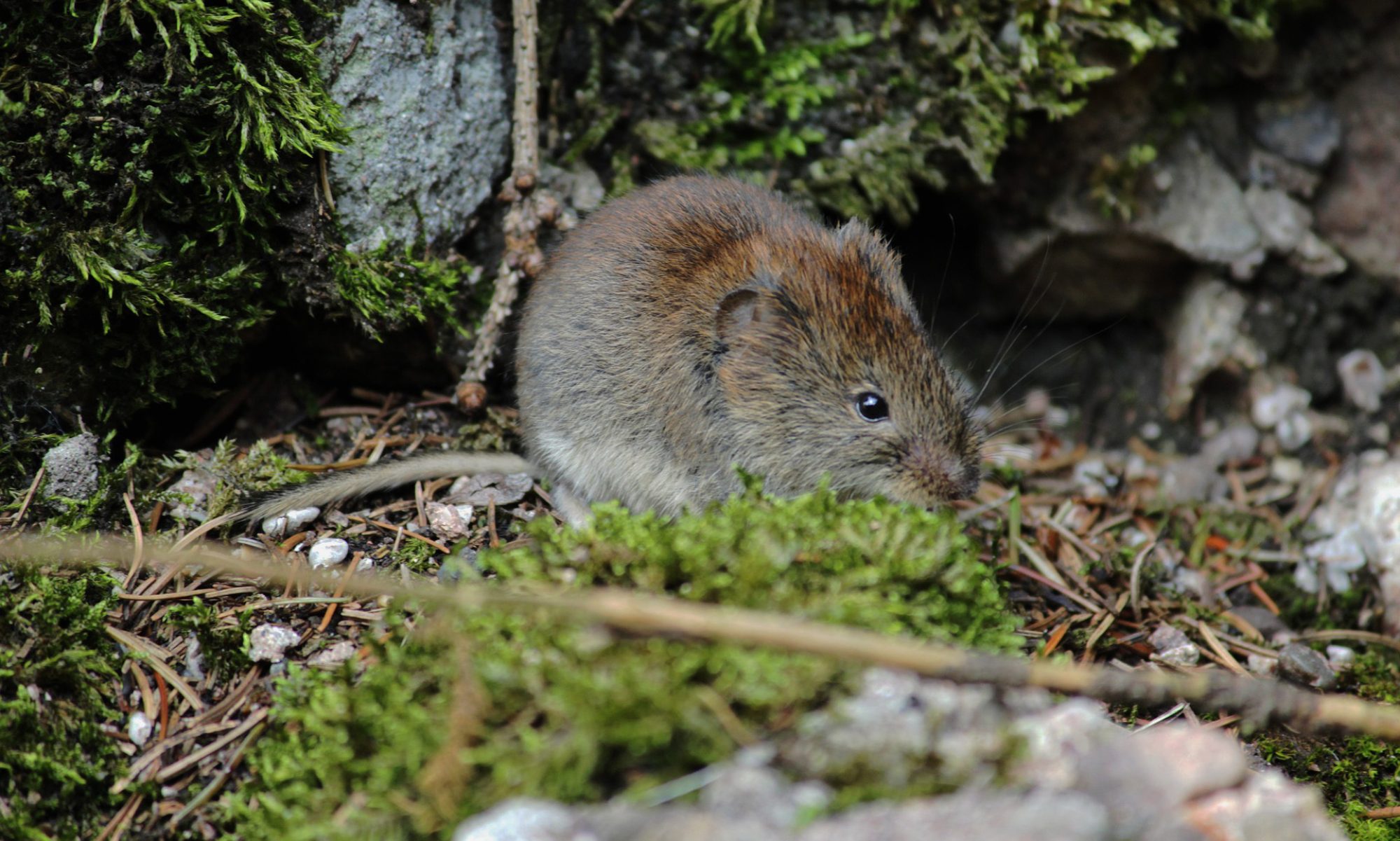What happens when bats need our help? We had a chat with Amber, a registered bat carer, to give us an insight into the amazing work she is doing with the Bat Conservation Trust!

Please introduce yourself in a few sentences
My name is Amber, I’m 22 and I’m from the Wirral. I am passionate about conserving the natural world and have a love for bats. I have a BSc in Animal Conservation Science and I am doing my MSc in Wildlife Conservation.
Who are you currently working/volunteering with/for?
I am a volunteer bat carer registered by the Bat Conservation Trust (BCT). I am based in Cheshire and help cover Chester, Wirral and into Flintshire.
What does this role involve?
This role involves communicating with members of the public who have found grounded or injured bats. Often they are calls from people who have found a bat in their house or garden. Usually it is just a case that the bat has gotten inside the house and cannot get back out. These patients usually just need some rehydration, food and rest and can be released relatively quickly. A bat found outside during the day normally indicates that something else is wrong with them, such as injury or disease. Once the bat is in care the species, age, sex, forearm measurement and weight of the bat, as well as any injuries or abnormalities, are recorded.
The bat is then kept in care and nursed back to health until it is ready to be released. Sometimes patients will need to be seen by a vet for more serious treatment. At the moment it’s pup season, so carers up and down the country have been busy trying to reunite baby bats that have been found with their mum. If reuniting is unsuccessful the pup goes to a carer who can hand rear the pup. This involves round the clock feeds and gradual flight training.

What is the most rewarding part of your current role?
Releasing a bat you have cared for is very rewarding. I always get a warm feeling watching them fly away.
What do you find most challenging about your current role?
It’s rough when you can’t help the bat, whether that be because of the bats condition or because you can’t get to the bat or arrange to have the bat brought to you. Losing a bat is always difficult, but when you have numerous animals in care relying on you, you just have to take a moment and then carry on.
How many species of Bat do you work with and which ones do you work with most commonly? Is there a reason why you work with some species more than others? Does this differ at certain times of the year?
There are 17 species of bats in the UK (all insectivorous species) and where I live we get around 5 of those. However, I mainly deal with pipistrelles (both common and soprano). I think that’s because of the nature of pipistrelles, they’re abundant, opportunistic and exploit a lot of habitats including around buildings and residential areas. They’re more likely to be found by people or get stuck indoors. It differs depending on what region you are based in. During and post pup season is the busiest time of the year for carers as that’s when naïve juvenile bats are learning (and failing) to fly.

How did you get into this role?
I contacted the BCT. I had to get vaccinated for rabies and find an experienced carer who could train me and be my reference.
Why Bats, what makes you love them?
That is a very dangerous question to ask me, I could go on for days! To sum it up I’ll say they are fascinating, majestic and misunderstood creatures. They are the only flying mammal! There are over 1400 species of bats worldwide and they are so diverse! They provide us with essential ecosystem services such as pest control (which aids in controlling the spread of malaria and saves billions in terms of pesticides), pollination and seed dispersal. They’re just beautiful animals, there is something comforting about watching bats fly around at dusk and something incredibly exciting about a roost emergence.
What would your advice be to somebody who wants to work with Bats in the future?
Speak to people who currently work with bats and don’t be afraid to ask questions. Knowing someone who can teach you and vouch for you is essential. Most of the time bat workers will jump at the chance to talk about bats- I know I love it when someone gives me an excuse to blab about them! Also be prepared to commit to late (sometimes cold) nights.
What should a member of the public do if they find a Bat?
BCT have a helpline you can contact that will advice you on how to safely contain the bat in a box with a cloth and a bottle lid of water. They will put you in contact with your local bat carer for you to call and arrange collection/drop off of the bat. It is important not to touch wild animals with bare hands. Bats do not normally bite but will do if they feel unsafe or are unwell, which is normally the case if a bat is found during the day.
If you find a bat please contact the National Bat Helpline on 0345 1300 228
or visit their bat helpline page.
Find out more about becoming a bat carer
If you enjoyed Amber’s story, then click to see the story of these Pipistrelles being released after care and rehabilitation from CA Ecology’s Claire Andrews:


